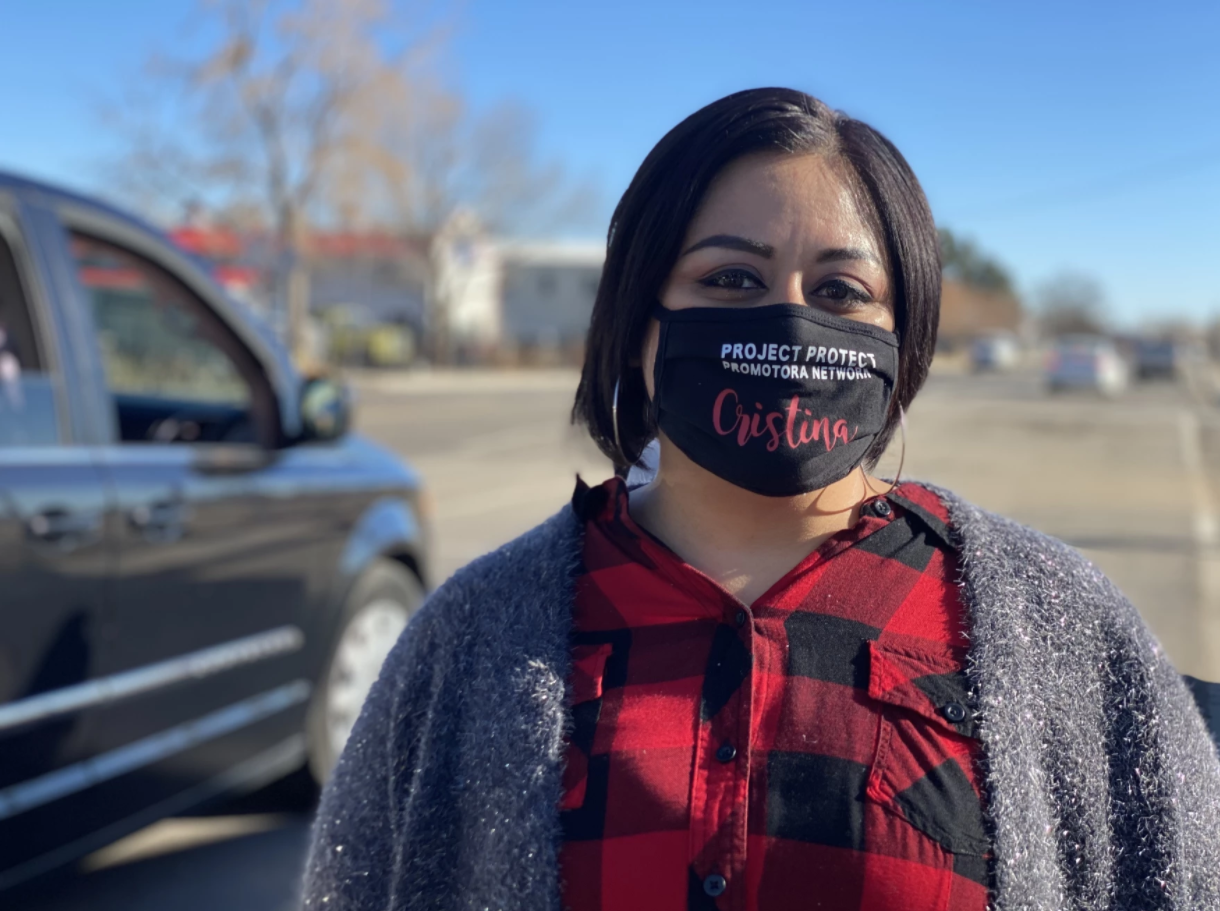When COVID Info Doesn’t Reach Everyone, These Trusted Messengers Step Up To Help In Hard-Hit Latino Communities

Through federal CARES Act funding, and the Colorado Department of Public Health and Environment, the Project Protect Promotora Network launched in September to get the word out to the Latino community on virus prevention and care.
A silver van pulls up to a coronavirus testing site in the parking lot of La Familia, a daycare and family services center in Fort Collins. Cristina Diaz and her coworker hand fluffy, pink unicorn stuffed animals to the kids in the backseat. They load boxes of rice, milk, and masa flour into the back.
Diaz’s big brown eyes peek out above her black face mask, which has ‘Cristina’ written across it in red cursive. She oversees Larimer and Weld Counties as the regional coordinator for Project Protect Promotora Network. These ‘promotores’ — community health liaisons — educate Latino residents, mostly Spanish-speaking migrant workers, about COVID-19.
In the past, promotores have worked with public health departments to reach underserved communities on issues from smoking cessation to cervical cancer. Through federal CARES Act funding, and the Colorado Department of Public Health and Environment, this group launched in September to get the word out on virus prevention and care.
Promotores oftentimes lack formal medical training, but they are well-connected in their communities. Diaz, for example, has served on the boards of Northern Colorado nonprofits. Until recently, she was a social worker. Today, her strategy is to first draw people to the testing site with food boxes.
“And then say, ‘Hey, by the way, we have COVID testing right here. Do you have any of these symptoms? Do you know anyone?’ So they’re going to leave here and they’re going to go home like, ‘Hey, I just went and got this food box and I got tested.’ And then we’re going to have more people here this afternoon,” Diaz explained with a laugh.
Going where people live and work
Working conditions, living situations and language barriers are among several factors that have led to high infection rates among Latinos in Colorado. These promotores are stepping up to educate people who have not been reached by mainstream information sources.
Read more HERE.

